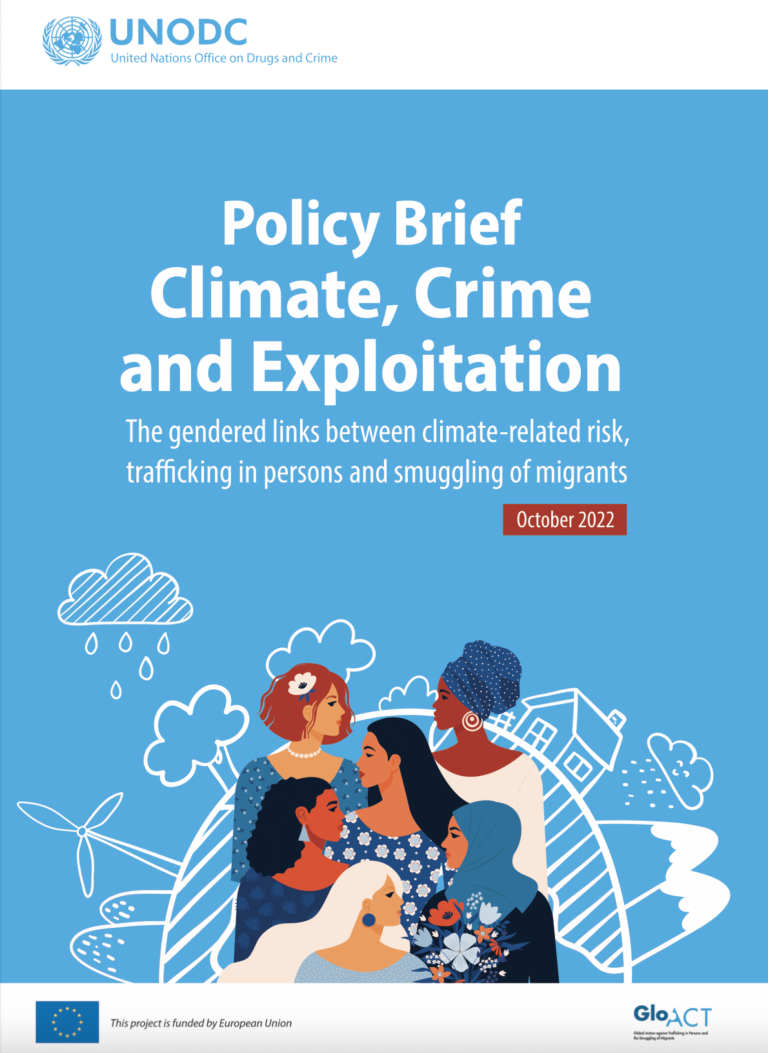At least 3 billion people live in contexts highly exposed to the impacts of climate change19 and yet more to non-climatic environmental degradation and disaster. Even if the world meets the currently improbable target of limiting global warming to 1.5 C degrees set out in the Glasgow Climate Pact, extreme weather and environmental degradation will see the deterioration of ecosystems and loss of biodiversity depended on by billions. In climate vulnerable countries, children and future generations, women, the poor (among whom the majority are women), and Indigenous Peoples, are disproportionately impacted.
The international community is expanding its response and financing. Mitigation measures aim to limit the damage by reducing and removing carbon, using regulation (like emissions limits) and technology (like carbon sinks). Adaptation measures seek to help people survive sudden-onset disasters and reconstitute livelihoods undermined by slow-onset processes that degrade soils, rivers and forests.
Additional factors threaten to exacerbate climate damage and undermine mitigation and adaptation strategies. Environmental crimes accelerate the destruction of natural resources and undermine the resilience of affected populations. The economic damage of COVID-19 has intensified competition for resources, increased the precarity of people on low incomes and with insecure migration statuses, and reduced the capacity of states to respond, as does the conflict and instability seen in some climate-vulnerable countries, such as those in the Sahel. Conflict and instability undermine adaptation measures.
This brief explores how climate change, climate-re- lated events, and crimes that affect the environment (environmental crimes) influence trafficking in persons (TIP) and smuggling of migrants (SOM), with special consideration of gender. It draws on expert interviews and a desk review to explore three key questions:
- The effects of climate change, climate-related events, and environmental crime on TIP and SOM, and in particular its effects on women, in Part 1. Climate, movement and vulnerability.
- How business practices shape exposure to TIP and SOM risk, in Part 2. Climate, industry and exploitation.
- Current and emerging responses among policymakers, law enforcement, and civil society, in Part 3. Legal, policy and criminal justice responses.
- The case of Bangladesh, a climate vulnerable and origin country for TIP and SOM, and a pioneer in adaptation, in Part 4. Environment and vulnerability in Bangladesh.
The paper concludes with Part 5. Framing the response and lists recommendations.
The analysis takes a human rights-based approach, integrating the United Nations Office on Drugs and Crime (UNODC) human rights and gender equality toolkit, which provides practical ways of integrating the protection of rights outlined in the United Na- tions Convention against Transnational Organized Crime (UNTOC) and sibling protocols on TIP and SOM into programmatic approaches. In particular, that approaches to countering TIP and SOM should not affect rights outlined under international human rights laws, including the 1951 Refugee Convention.

